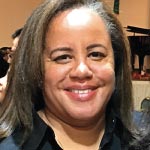By Elizabeth Strout
Reviewed by Dennis Bianchi
Elizabeth Strout has written three best-selling books, one of which, Olive Kitteridge, won the Pulitzer Prize for fiction in 2008. Her stories take place in New England, particularly New York City and the state of Maine, the places in which she resides.
As children, the Burgess siblings, oldest brother Jim and the twins, Bob and Susan, were all in the family sedan, parked in the family home's driveway, when the father got out to clear something from the path. A sibling, playing with the auto's controls, sent the car in motion and it killed their father. This event obviously hangs over the family for the rest of their lives, but throughout the rest of the book it is referred to infrequently. Just enough to remind the siblings, and therefore the reader, of the traumatic event.
The brothers left the town of Shirley Falls, Maine as soon as they were able. Jim has become a well-known, successful attorney and is seemingly happily married. His brother Bob, is also an attorney but couldn't handle the pressure of the courtroom and has become an appeals lawyer for the State. Unlike Jim, Bob is divorced and lacking confidence. Both brothers now live in an upscale section of New York City. Susan, also divorced, works as an optometrist and is raising her son alone in Shirley Falls, Maine. The son, Zack, a bit of an emotionally disturbed teen-ager, has thrown the head of a pig into a mosque of the immigrant Somali community of Shirley Falls during the Muslim holy season of Ramadan. What could have been perceived as not much more than a thoughtless prank has escalated from a misdemeanor to a hate crime against the Muslim Somalis. Susan calls her brothers and asks them to return to Shirley Falls with their legal expertise to assist in the defense of her son. The reunion reignites old family attitudes and sparring, creating a story that is much more than just the legal maneuverings to resolve young Zack's predicament.
The story explicates the dynamics between adult siblings: old and new jealousies, pecking orders, divorces and social status. The author also brings into focus how we all remember the past differently, and frequently incorrectly. We learn about Maine and its struggles to hang onto its identity while accepting immigrants, something Maine has had trouble with as far back as the days French Canadian loggers and Swedish factory workers who came to Maine for jobs, and now, apparently modern day Somalis fleeing a war torn country. One of the stronger characters in the story is the Somali elder of the Shirley Falls Somali community, Abdikarim. He seems to have depth and complexity. He demonstrates the humanity we want to see in leaders. He seems to understand young Zack even more so than Zack's family. He strives to achieve a higher realm in life for himself and others.
The novel's ending is not a typical ending. There isn't a happy or sad conclusion, only a dramatic change in people and the direction of their lives. I found this refreshing. I also found Ms. Strout's writing clear and uncomplicated. She seems to not want to dazzle the reader but to write in a way that provokes the reader to think a bit longer about how one's words can injure or hurt, and what are the consequences of words spoken in an unthinking manner.

